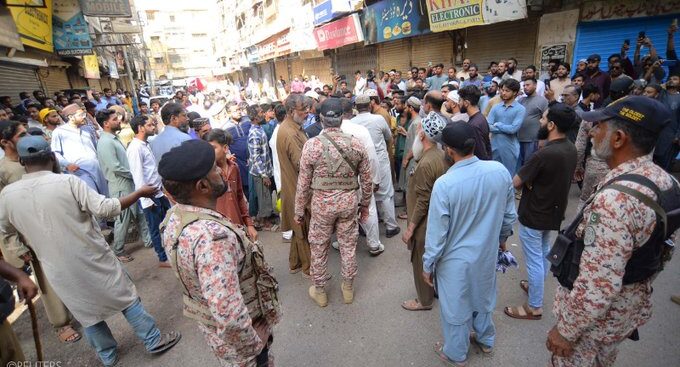UN human rights experts have issued a stark warning to the government of Pakistan, urging it to take immediate and effective measures to address the growing violence, extrajudicial killings, arbitrary arrests, and attacks on places of worship targeting religious minorities, especially the Ahmadiyya community. The experts expressed deep concern over the persistent discrimination and hostility these communities face, calling for an end to the culture of impunity that enables such attacks.
In a joint statement, the experts voiced their shock at the increasing violence against vulnerable communities on the grounds of religion or belief. They highlighted the continuous harassment, killings, and systemic abuse faced by minorities, particularly the Ahmadiyya community, who have been subjected to relentless persecution. “These communities have witnessed unending attacks, killings, and harassment for months, driven by incitement to hatred and violence against them,” the experts stated.
Pakistan, the experts argue, must break the cycle of impunity that shields those responsible for these crimes. “These attacks take place with tacit official complicity, while the cycle of fear stifles efforts to protect the rights and dignity of minorities,” they emphasized. The experts called on the government to promptly investigate the violations, hold perpetrators accountable, and ensure the safety and security of religious minorities, with a special focus on the Ahmadiyya community.
While acknowledging the arrest of some perpetrators and the commencement of court proceedings, the experts noted that sentences handed down have failed to reflect the seriousness of the offenses committed. Many perpetrators have been allowed to avoid justice altogether, further perpetuating the cycle of violence and discrimination.
Over the past year, the Ahmadiyya community has faced a disturbing number of human rights violations. These include targeted killings, deaths in custody, arbitrary detentions, and religious discrimination. The community has been subjected to the demolition of historic mosques, the closure of places of worship, and attacks on graves, such as the desecration of at least 82 Ahmadi graves in Kotli, Azad Kashmir. Violent incidents have also occurred during religious celebrations, with mosques vandalized and forced shutdowns of Ahmadi places of worship in major cities like Karachi and Lahore. In some areas, minors and people with disabilities have been arrested en masse during crackdowns.
The situation for women, particularly those detained under blasphemy charges, is also dire, as they face unique and gendered abuses. The experts noted that the continued incitement to violence and hate speech from political and religious figures has aggravated the discrimination faced by Ahmadis and other religious minorities in Pakistan.
The experts also pointed to the Pakistani National Assembly’s June 2024 resolution, which urged both federal and provincial governments to ensure the safety and security of all citizens. Despite this, violations continue to escalate, leaving religious minorities vulnerable and unprotected.
In light of these ongoing abuses, the experts called for the repeal of Pakistan’s blasphemy laws, which they believe contribute to the harassment and violence faced by religious minorities. They emphasized that the Pakistani government must meet its obligations under international human rights agreements, including the International Covenant on Civil and Political Rights (ICCPR), to protect the rights of all citizens, regardless of their faith.
“We stand ready and willing to support the Pakistani Government in effectively implementing its obligations under the International Covenant on Civil and Political Rights and other international human rights instruments,” the experts concluded, urging immediate action to protect religious minorities in the country.
Pakistan’s failure to address these violations and protect its religious minorities not only undermines its international commitments but also risks further instability and violence within its borders. The time for concrete action is now.
